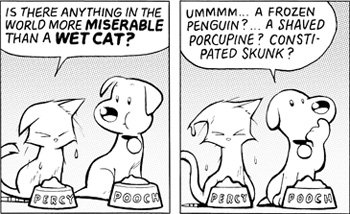
I’m not naming names, but certain politicians rely on hyperbole, exaggeration and drama that frequently seems to have little relationship to facts. That’s not a political statement, it’s an observation. So is that merely a rhetorical distinction, or is it important.
I once wrote in response to Bob Batchelor that public relations/communication isn’t evil, but that political PR probably is. Lee Atwater, James Carville, Karl Rove, George Stephanopoulos, and now Kellyanne Conway, Sean Spicer, Sarah Sanders… Technically NONE of these people are public relations. They are creatures of the political, not dedicated representatives of principled, ethical advocacy.
It’s really unfortunate, because those of us who do see ourselves as the latter are often observed to be the former. Certainly the strategic thrust of our job is to represent our client/boss and the interest of our organization in finding and supporting competitive advantage.
The question is, how far should we go?
In advertising law there’s a phrase that applies: Puffery. When a potato chip says, “no one can eat just one,” the reasonable person doesn’t think that is a literal claim. When a roofing company says in an ad that it’s a “world champion,” we know that there’s no objective competition under way that might support that contention. It’s puffery – it’s rhetorical and used to raise awareness and prompt interest, and the law says that’s ok.
In politics, however, there’s a whole industry dedicated to convince you that you didn’t hear what you just heard, that “she meant” something different. That we should “take him seriously but not literally.”
Danger, Will Robinson.
As a near 30-year pro in professional communication of varying stripes, I believe words and images matter. To quote the Christian bible, “He that is faithful in that which is least is faithful also in much: and he that is unjust in the least is unjust also in much.” (Luke, 16:10, KJV) If we can’t trust you with the small stuff, how can we do so for the big stuff?
The political realm is one of the only places where the “official” text of a speech is different than what the speaker actually said. Congress allows Members to “revise and extend” their remarks. So you cannot believe what you hear, right?
The rules on puffery shouldn’t apply in politics. We should expect our representatives in both the legislative and executive branches to speak the truth. Not a partisan version of it, but the actual truth. If they are engaging in speculation, or interpreting something, they should say so and NOT claim they are telling the truth or exposing lies when they are doing nothing of the sort.

